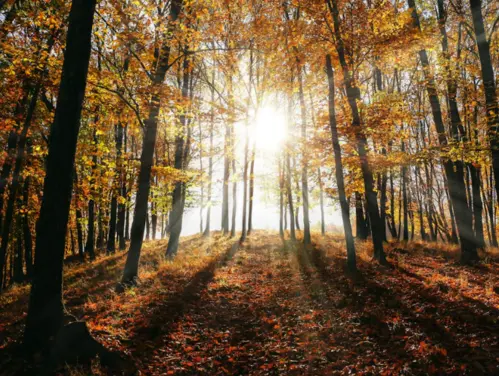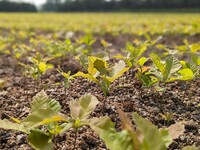This is the last fall color report for the season.
| Report Date | Area | Description of Fall Color | Est. Peak Viewing |
|---|---|---|---|
| 10/28/2024 | NE Iowa | The fall color season is winding down. Oak trees are providing most of the fall color with shades of red, yellow, and bronze. | Oct. 10-20 |
| 10/14/2024 | NC & NW Iowa | Fall color is at peak. Many species are in full yellow, including green ash, ironwood, hackberry, hickory, cottonwood, elms, and walnut. Maples are looking vibrant with orange and red colors. Poison ivy and Virginia creeper are showing red along with sumac and dogwoods. | Mid-October |
| 10/21/2024 | Central Iowa | Central Iowa will be at peak fall color through this weekend. Lots of yellows including cottonwood, elm, walnut, hackberry, ash, hickory, and others. Red and crimson colors are good on sumac, dogwood, Virginia creeper, and some maples. Oaks are turning red. | Oct. 21-25 |
| 10/28/2024 | SE Iowa | Fall colors are in peak season across southeast Iowa. Oaks are showing their colors and it is adding to the whole beauty of the landscape. A week to week and a half remains of the peak time to view colors. | Oct. 20 |
| 10/28/2024 | SCentral Iowa | There are still great fall colors across southern Iowa. Oaks are providing most of the color with bronze, purple, and reds. Shrubs, especially dogwood, are showing great purples, yellows, and reds. | Oct. 19 |
| 10/21/2024 | WCentral Iowa | Enjoy a scenic drive through the Central Loess Hills this week. Yellow color near Pisgah is vibrant. | Oct. 14-25 |
| 10/28/2024 | SW Iowa | Past peak color on oaks (last week). Red and rusty hues will be around for another week or two. | Early to Mid-October |
Fall Tree Color Information
Fall is often one of the best times in Iowa, with warm days and cool nights, low humidity, very few insects and the brilliant autumn colors of our trees.
Every year, thousands of Iowans and visitors flock to the countryside to view nature's colorful display of red, orange, yellow and purple leaves.
Looking for ways to enjoy Iowa's fall color? Visit Iowa Tourism.
Ash:
Green ash leaves turn yellow, but white ash has a purplish cast. The leaves fall after those of walnut trees, but earlier than those of oaks and maples.
Elms:
Elm leaves turn various shades of yellow with some turning brown before falling, others falling while still yellow.
Hickory:
Leaves turn yellow on hickory trees, then brown before falling.
Maple (Soft):
The leaves of soft (silver) maples turn yellow but do not turn brown before falling.
Maple (Hard):
Brilliant flame red hues are the signature of hard maple leaves. The red pigmentation of some leaves breaks down before falling.
Bur Oak:
Buff to yellow colors predominate in bur oaks. The leaves remain on the tree and turn brown before falling.
Oak (Red):
The red oaks have brilliant red leaves in fall though the color is probably not as intense as that of some hard maples.
Oak (White):
White oaks have a more subdued purple fall leaf color. The leaves then turn brown and often stay on the tree until new leaves begin to grow in the spring.
When do colors peak?
Peak fall color occurs in northeast Iowa, on average, during the weekend closest to October 10.
Typically, peak fall color occurs progressively later the farther south you go in Iowa. Perhaps the most important thing about fall color is having the time to enjoy it.


